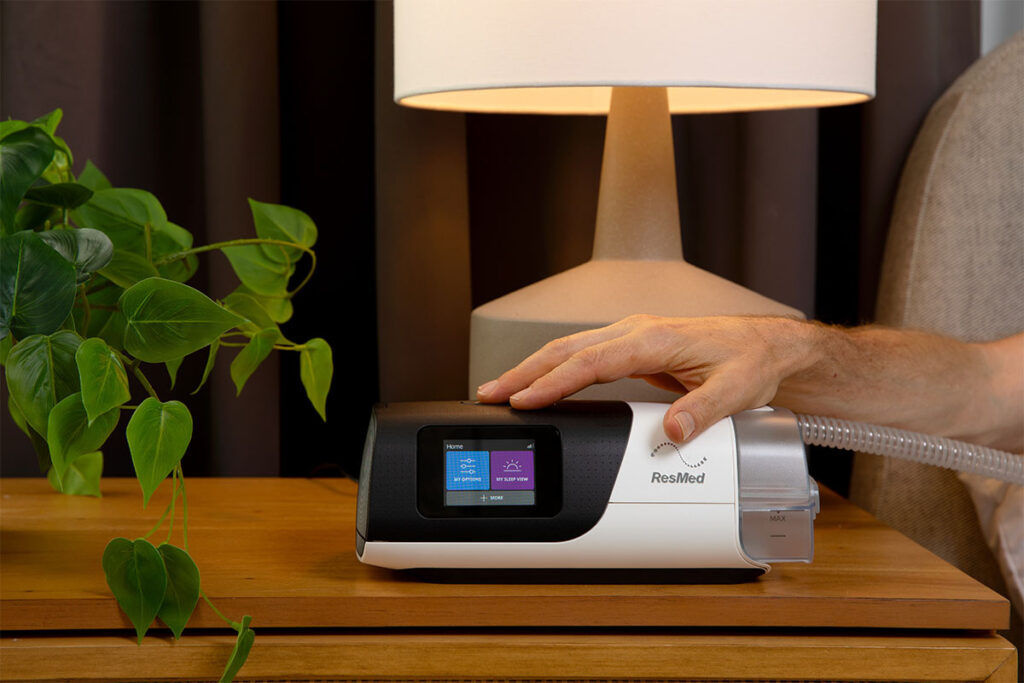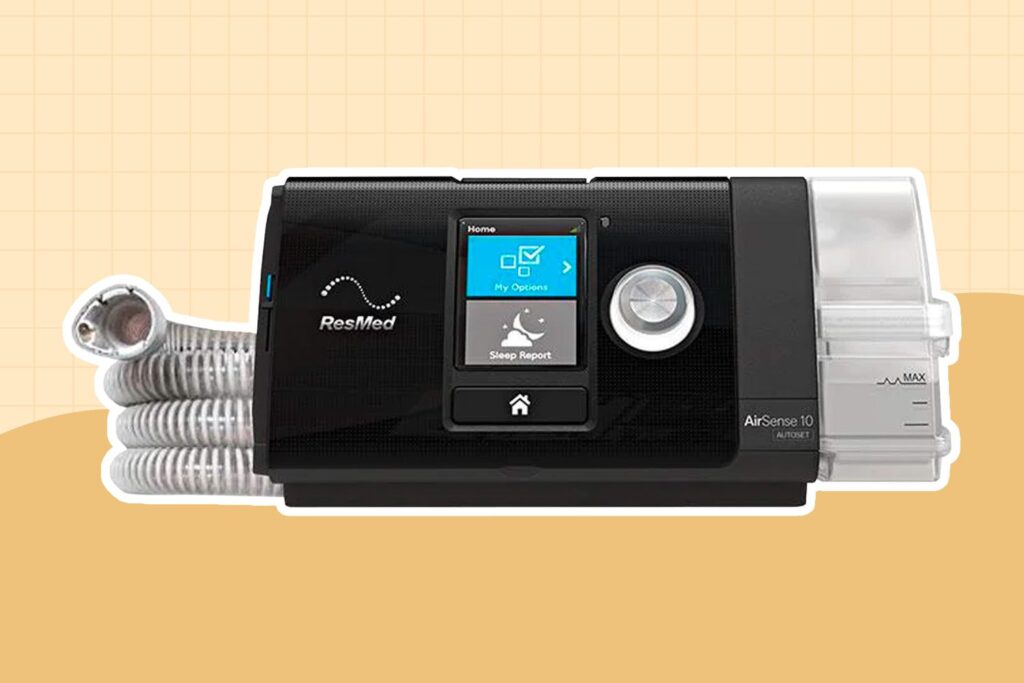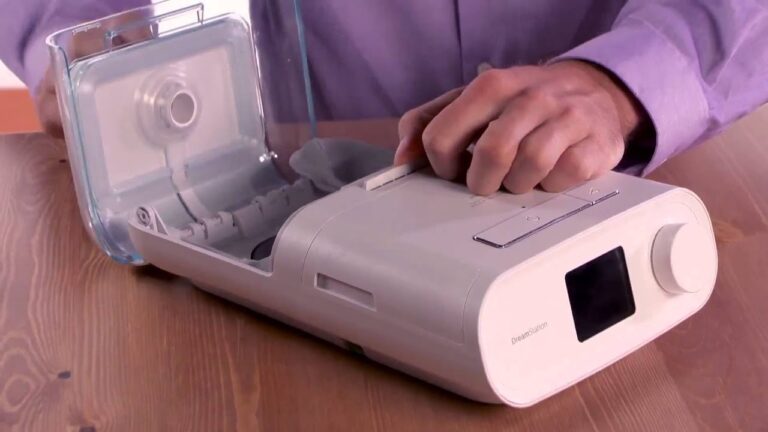Sleep apnea is a common sleep disorder that affects millions of people worldwide. It is characterized by interruptions in breathing during sleep, leading to fragmented sleep patterns and a host of accompanying health issues. Fortunately, there are effective treatment options available to manage this condition, with CPAP machines playing a pivotal role in sleep apnea management.
Understanding Sleep Apnea
Sleep apnea is a complex disorder that requires a comprehensive understanding to effectively manage it with CPAP machine Australia. This condition occurs when the muscles in the throat relax and collapse, causing a partial or complete blockage of the airway. As a result, the oxygen levels in the blood decrease, leading to recurrent awakenings throughout the night. The severity of sleep apnea can vary from mild to severe, depending on the frequency and duration of the breathing interruptions.
The Science Behind Sleep Apnea
During sleep, the body’s muscles naturally relax. However, in individuals with sleep apnea, the relaxation of throat muscles leads to the narrowing or closure of the airway. This can occur repeatedly throughout the night, resulting in fragmented sleep and decreased oxygen levels. The brain senses the drop in oxygen and sends signals to awaken the individual in order to restore proper breathing. These awakenings are often brief and may go unnoticed, but they can lead to excessive daytime sleepiness and other detrimental effects on overall health. Click here to get latest information about innovations in CPAP technology.

Symptoms and Diagnosis of Sleep Apnea
Recognizing the symptoms of sleep apnea is crucial for timely diagnosis and intervention. Common symptoms include snoring, gasping or choking during sleep, excessive daytime sleepiness, morning headaches, and difficulty concentrating. If you suspect you may have sleep apnea, it’s important to undergo a thorough evaluation by a medical professional. Diagnosis typically involves a sleep study, which can be conducted in a sleep clinic or through a home-based device, to assess the frequency and severity of sleep apnea episodes.
While the symptoms mentioned above are commonly associated with sleep apnea, it’s important to note that they can also be indicative of other sleep disorders. Therefore, a proper diagnosis is essential to determine the underlying cause of these symptoms. In addition to the symptoms mentioned, other signs that may suggest sleep apnea include restless sleep, frequent urination at night, and irritability.
When it comes to treatment options for sleep apnea, there are several approaches that can be considered. Continuous positive airway pressure (CPAP) therapy is one of the most common and effective treatments. This involves wearing a mask over the nose or mouth during sleep, which delivers a continuous flow of air to keep the airway open. Other treatment options may include oral appliances, lifestyle changes, and in some cases, surgery.
It’s important to remember that sleep apnea is a chronic condition that requires ongoing management. Regular follow-up appointments with a healthcare professional are necessary to monitor the effectiveness of treatment and make any necessary adjustments. With proper diagnosis and treatment, individuals with sleep apnea can experience significant improvements in their sleep quality and overall well-being.
An Introduction to CPAP Machines
Continuous Positive Airway Pressure (CPAP) machines are a widely prescribed treatment option for sleep apnea. These devices work by delivering a continuous supply of pressurized air through a mask worn over the nose or mouth, keeping the airway open and preventing the breathing interruptions associated with sleep apnea.
CPAP therapy is a non-invasive and effective way to treat sleep apnea, a common sleep disorder characterized by pauses in breathing or shallow breaths during sleep. These interruptions can lead to poor sleep quality, daytime fatigue, and other health issues if left untreated. By using a CPAP machine, individuals can experience significant improvements in their sleep patterns and overall well-being.
How CPAP Machines Work
A CPAP machine works by gently pushing air into the airway at a predetermined pressure. This constant flow of pressurized air acts as a splint, preventing the throat muscles from collapsing and maintaining an open airway. By ensuring a steady flow of oxygen, CPAP therapy effectively eliminates the disruptions in breathing and allows individuals to experience uninterrupted and restful sleep.
It’s important to note that CPAP machines are not a cure for sleep apnea but rather a management tool. Consistent and correct usage of the CPAP machine is crucial for its effectiveness. Patients may need some time to adjust to wearing the mask and using the machine during sleep, but the benefits of improved sleep quality and overall health make it a worthwhile adjustment.
Different Types of CPAP Machines
There are various types of CPAP machines available to cater to different needs. Standard CPAP machines deliver a fixed pressure throughout the night, while auto-adjusting CPAP machines automatically adjust the pressure based on the individual’s breathing patterns and needs. Additionally, there are CPAP machines designed for travel, which are smaller and more portable, allowing individuals to maintain their sleep apnea treatment while on the move.
Some CPAP machines come with additional features such as heated humidifiers to prevent dryness in the airways, ramp settings to gradually increase pressure as the individual falls asleep, and data tracking capabilities to monitor the effectiveness of the therapy. These advancements in CPAP technology aim to enhance comfort and compliance for users, ultimately improving their adherence to treatment.
The Connection Between CPAP Machines and Sleep Apnea
CPAP machines have revolutionized the management of sleep apnea and have a profound impact on both the physical and mental well-being of individuals living with this condition. The benefits of using CPAP machines extend beyond simply treating sleep apnea; they also play a vital role in preventing further health complications associated with untreated sleep apnea.
Individuals with sleep apnea often experience fragmented sleep patterns due to repeated pauses in breathing throughout the night. CPAP therapy works by delivering a continuous flow of air through a mask worn over the nose or mouth, keeping the airway open and allowing for uninterrupted breathing. This not only improves the quality of sleep but also ensures that vital organs receive an adequate oxygen supply, reducing the strain on the heart and lungs.
The Effectiveness of CPAP in Sleep Apnea Treatment
CPAP therapy is considered the gold standard for treating sleep apnea. Research has consistently shown that consistent and proper use of CPAP machines leads to significant improvements in sleep quality, daytime alertness, and overall quality of life. It effectively reduces the frequency of breathing interruptions, increases oxygen levels, and restores the natural sleep patterns necessary for optimal health.
Furthermore, CPAP therapy has been linked to a reduction in the risk of developing serious health conditions such as diabetes and metabolic syndrome, which are often associated with untreated sleep apnea. By addressing the root cause of sleep apnea – the obstruction of the airway – CPAP machines help individuals maintain a healthy weight, regulate blood sugar levels, and improve insulin sensitivity.
The Role of CPAP in Preventing Sleep Apnea Complications
Sleep apnea can have detrimental effects on cardiovascular health, cognitive function, and overall well-being. By effectively managing sleep apnea with CPAP machines, individuals can reduce their risk of developing associated complications such as high blood pressure, heart disease, stroke, and cognitive impairments. Consistent use of CPAP therapy has also been shown to improve mood, decrease daytime fatigue, and lower the risk of accidents caused by excessive sleepiness.
In addition to its physical benefits, CPAP therapy can also have a positive impact on mental health. The restoration of restful sleep can lead to improved concentration, memory, and emotional stability. By ensuring that individuals with sleep apnea receive the restorative sleep they need, CPAP machines contribute to a better overall quality of life and a reduced risk of mental health disorders such as depression and anxiety.

Living with a CPAP Machine
Adjusting to life with a CPAP machine may initially pose a challenge, but with time and patience, it can become an integral part of an individual’s routine. Embracing the benefits of adequate sleep quality and improved overall health can make the adjustment process worthwhile.
Adjusting to Life with a CPAP Machine
It is normal to experience some discomfort during the initial stages of using a CPAP machine. However, with regular use and adjustments based on individual needs, individuals can find the right mask fit, pressure settings, and comfort levels to enhance the sleep therapy experience. Engaging in a positive mindset and seeking support from healthcare professionals and support groups can make the transition smoother.
Furthermore, incorporating relaxation techniques such as deep breathing exercises or listening to calming music before bedtime can help individuals feel more at ease with using their CPAP machine. Creating a soothing bedtime routine can also signal to the body that it is time to wind down and prepare for restful sleep, improving the overall efficacy of the CPAP therapy.
Maintenance and Care for Your CPAP Machine
Proper maintenance and cleaning of CPAP machines are essential for ensuring their longevity and effectiveness. Regularly cleaning the mask, tubing, and humidifier components helps prevent the buildup of bacteria and mold, creating a hygienic sleep environment. Following the manufacturer’s guidelines for replacement parts and filters is equally important to maintain optimal performance.
In addition to regular cleaning, it is crucial to inspect the CPAP machine for any signs of wear and tear. Checking for loose connections, cracks in the tubing, or worn-out straps can prevent potential issues and ensure uninterrupted sleep therapy. Establishing a routine maintenance schedule, such as weekly cleaning and monthly equipment checks, can help individuals stay on top of caring for their CPAP machine.
Other Treatment Options for Sleep Apnea
While CPAP machines are highly effective in managing sleep apnea, they may not be suitable for everyone. Fortunately, there are alternative treatment options available for individuals who cannot tolerate or benefit from CPAP therapy.
Lifestyle Changes for Sleep Apnea Management
Making certain lifestyle modifications can significantly improve sleep apnea symptoms. These changes may include maintaining a healthy weight, exercising regularly, avoiding alcohol and sedatives that relax the throat muscles, and sleeping in a position that keeps the airway open. Additionally, practicing good sleep hygiene, such as adhering to a consistent sleep schedule and creating a conducive sleep environment, can greatly enhance the quality of sleep.
Medical Procedures and Alternatives to CPAP
In cases where CPAP therapy is not suitable or effective, medical interventions such as oral appliances, which reposition the jaw to open the airway, or surgical procedures to remove excess tissue or correct structural abnormalities, may be recommended. These options should be discussed with a sleep specialist to determine the most suitable alternative treatment path.
Conclusion
In conclusion, sleep apnea is a serious sleep disorder that necessitates proper management to ensure an individual’s overall health and well-being. CPAP machines have emerged as a game-changer in the treatment of sleep apnea, offering a reliable and effective solution for maintaining open airways and restoring restful sleep. With their ability to alleviate symptoms, reduce health risks, and enhance quality of life, CPAP machines play a vital role in the management of sleep apnea.

